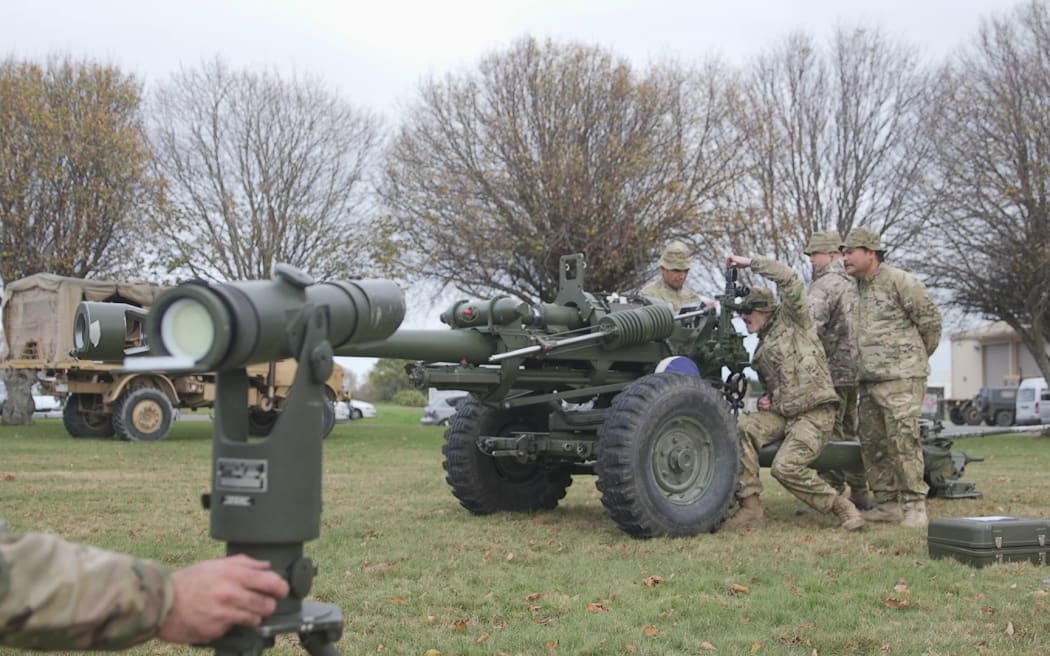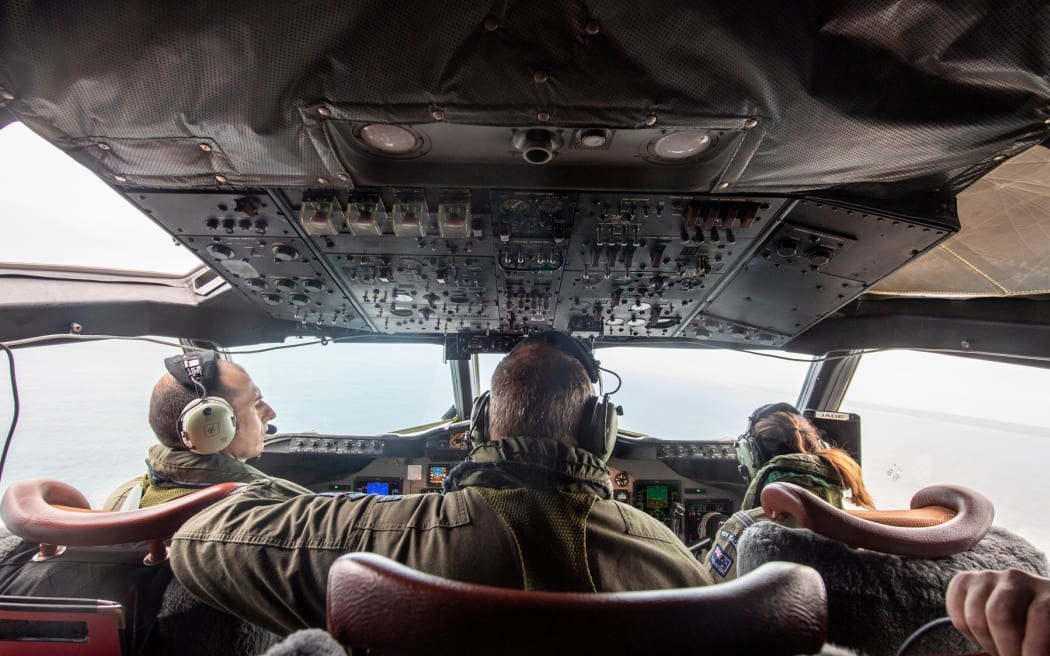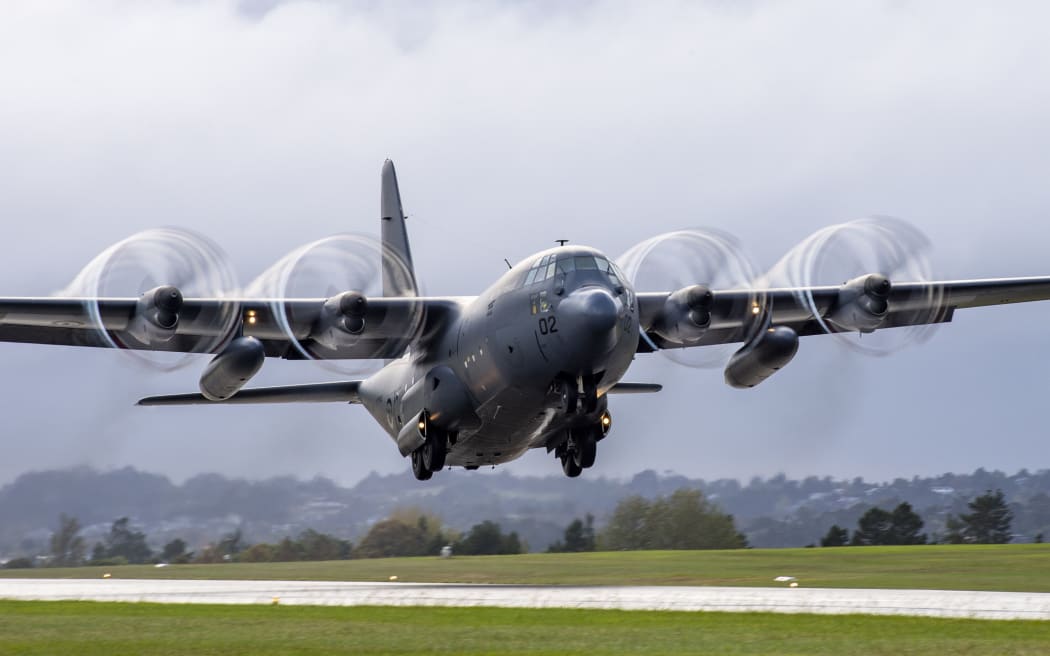An international relations expert believes the government's defence policy review will ask some fundamental questions of the Defence Force and its identity.

Photo: RNZ / Samuel Rillstone
Citing a post-Covid-19 world, the escalating impacts of climate change, and the intensification of strategic competition, Defence Minister Peeni Henare wants to ensure future investments are fit for purpose.
The director of the Centre for Strategic Studies at Victoria University of Wellington, Professor David Capie, said that the review will establish high-level principles.
"Ultimately, it's going to be looking at these big questions of what kind of a defence force you want going forward? What do you want it to do? What missions do you want it to do? And what kind of capabilities and platforms does it need to do that?"
The review will outline a new defence policy and strategy statement, expressing the government's defence policy interests, objectives and high-level strategy.
It will also establish a set of design principles to define the activities and scenarios for the future.
Green Party defence spokesperson Golriz Ghahraman said the review should recognise that the vast majority of what the Defence Force does is environmental monitoring and disaster relief.
READ MORE
- Defence Policy Review: Kicking the can down the road or fundamental reset?
- New Zealand's Management of its Strategic Assets: In Need of Recalibration?
- Indefensible New Zealand
- Are we spending too little – or too much – on the military?
"When the minister talks about whether stuff is fit for purpose, that should have a two-prong test. It should be 'is this actually what we need from environmental monitoring and disaster relief,' because, let's face it, that is basically what we do, what we're good at.
"And then 'is this an ethical investment? Are we buying from a company that also is helping commit war crimes?'"

A Defence Force flight over Tonga shortly after the volcanic eruption and tsunami earlier this year. Photo: Supplied / New Zealand Defence Force
Professor Capie said the government will always have to wrestle with the here-and-now security issues, and the unpredictability of the future.
"There's always that challenge about, especially with a small force, in terms of making sure that you're getting the best value you can out of limited resources, but also giving yourself the flexibility, so that when the ministers come and ask you 'what can Defence do to help here' that you've got a range of capabilities to actually give them some options."
Labour to put stamp on $20b plan
In 2019, then-defence minister Ron Mark unveiled the mammoth $20 billion Defence Capability Plan. Nearly every major piece of defence hardware was earmarked for an upgrade.
While the government has committed to the big decisions it made in coalition with New Zealand First, Capie said Labour has made clear it wants its fingerprints on what happens next.
"I think what they're saying is there's no number attached. They first want to start with, what are the challenges out there? What does the strategic environment look like? And then secondly, from that build on the idea of some high level principles of what they actually want the Defence Force to do."
New Hercules and Poseidon aircraft are set to be delivered by the end of the year, while the 30-year old and breakdown susceptible RNZAF 757s are not scheduled to be replaced for another six years.

An RNZAF Hercules. Photo: NZDF
Prime Minister Jacinda Ardern who is currently travelling on one, insists the planes still do an incredible job.
"I will speak very strongly in defence of our New Zealand Defence Force. Their primary job is not to transport me from time to time to the likes of Australia, should I be on a rare occasion visiting.
"Their job is to make sure that they're supporting New Zealand's interests and particularly the interests of the Pacific region. And they do that with great success," she told reporters following her speech to the Lowy Institute in Sydney.
National's acting defence spokesperson Gerry Brownlee expected projects that have already been deferred to be pushed back further.
"It's just mind boggling that you could have the prime minister out there today, outlining concerns about the increasing competition in the Pacific, restating the positions that we have with Australia and our formal ally and our long-term association with like minded countries, then on the same day announce this review that almost inevitably, will lead to the slowing of that procurement plan, if not the jettisoning of some aspects of it."
Henare said in a statement that the review will not impede the Defence Force from contributing to responses to issues facing Aotearoa and the Pacific "as they already do to such a high standard".
"The timeframe for the review reflects the need for comprehensive policy and strategy development to ensure New Zealand's interests remain protected in the future, and I believe we should take the necessary time to get this underlying policy and strategy right."
Decisions already made such as the new Hercules and Poseidon aircraft would continue, he said.
"While the Defence Capability Plan 2019 will continue to guide our investment, developments in Ukraine, on climate change, and in the scale and regularity of natural disasters remind us that unforeseen events require an agile and dynamic approach to strategy and defence capability."




